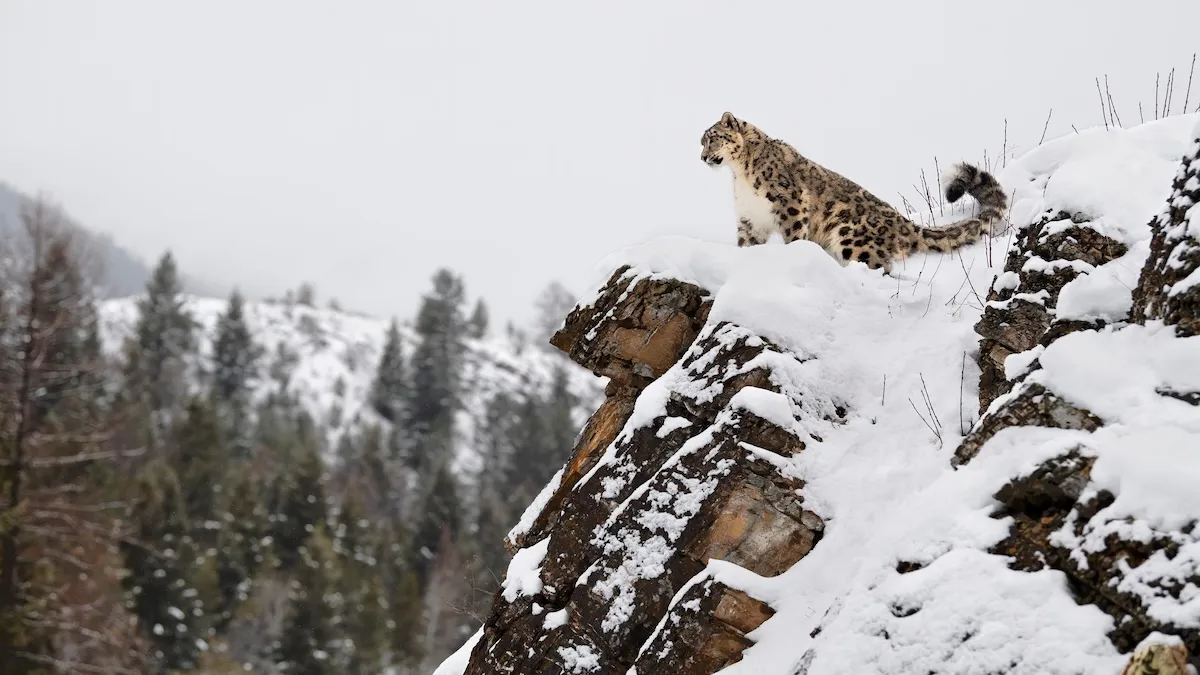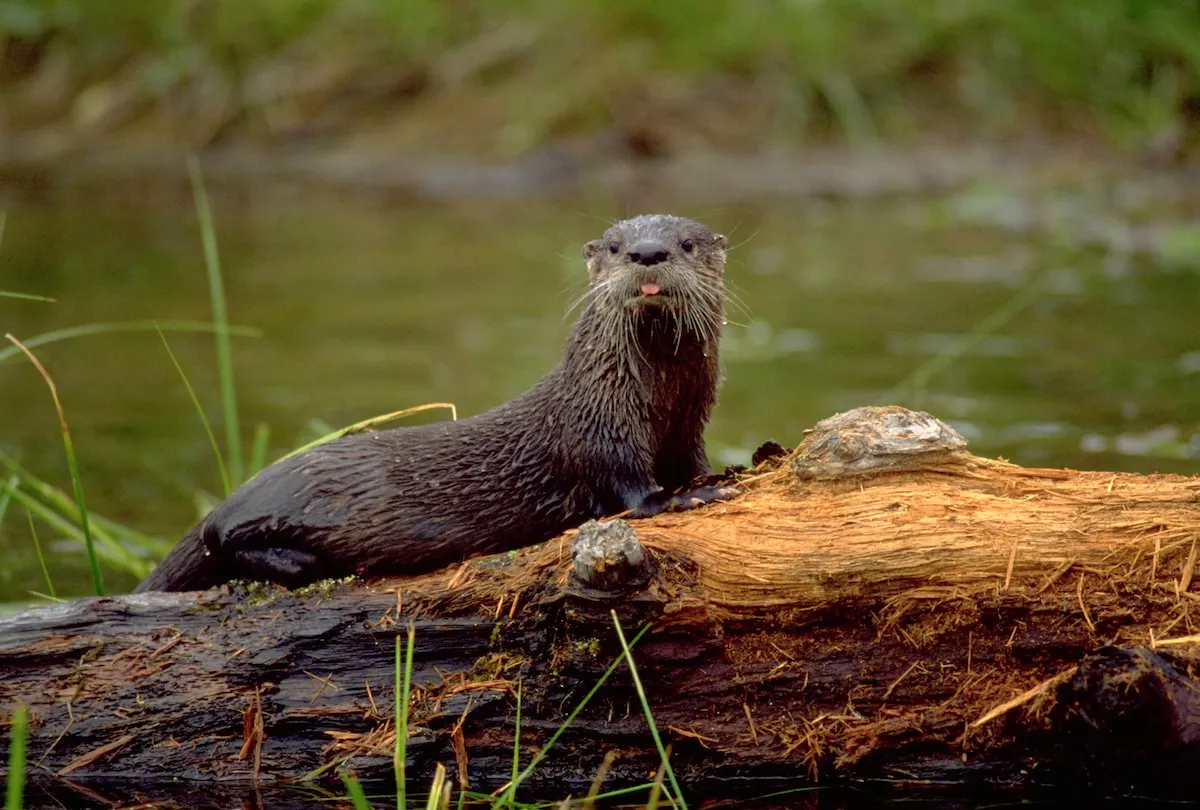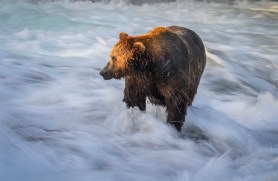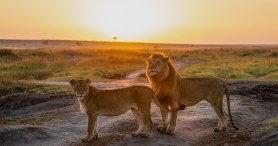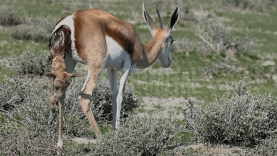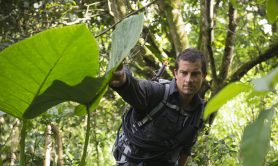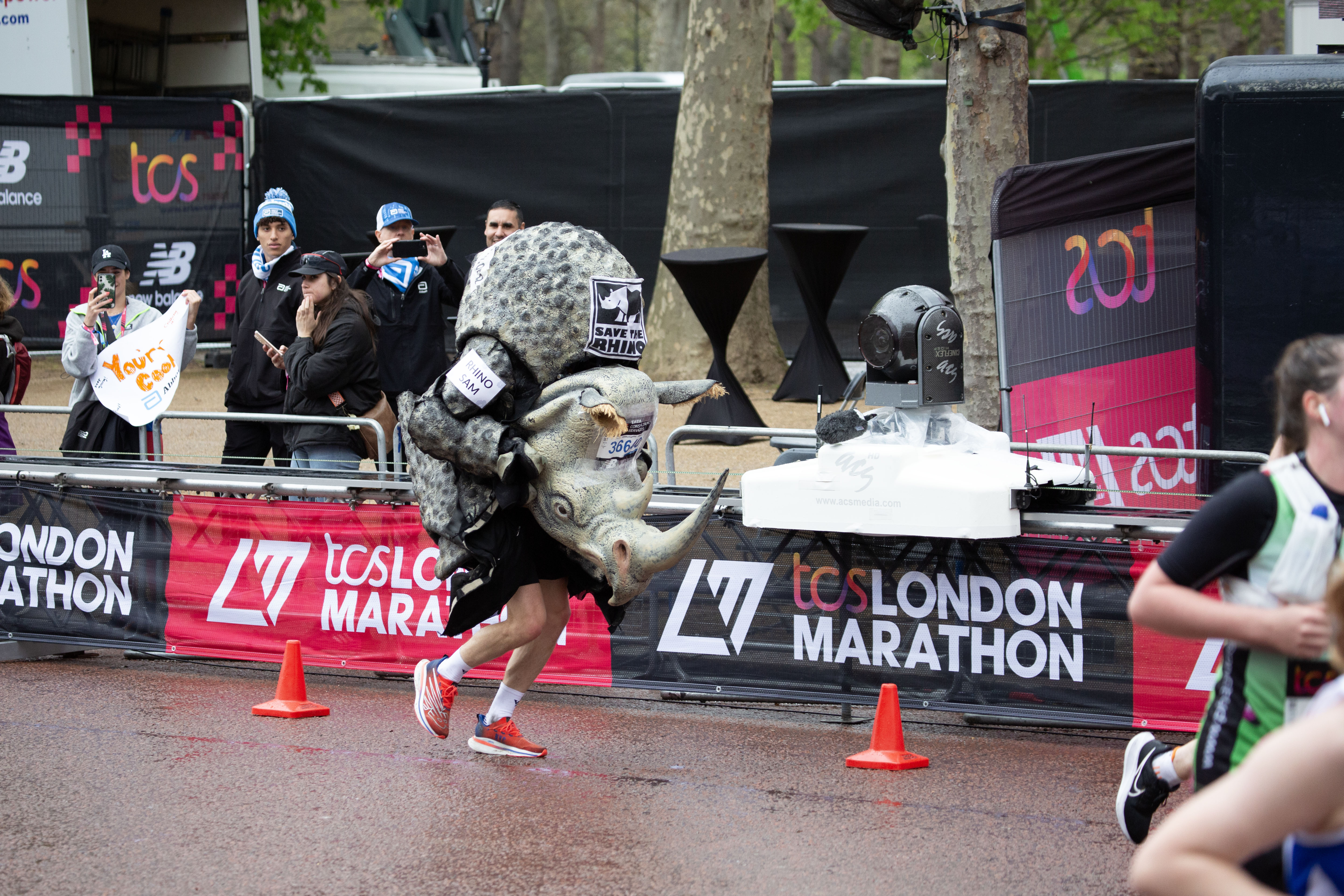

Recently, at the Sumatran Rhino Sanctuary in Way Kambas National Park in Indonesia, a baby Sumatran rhinoceros was born. This newest rhino calf, a male, will bolster a population in trouble—a population that has fewer than 50 adult individuals remaining. Sumatran rhinos are classified on the IUCN Red List of Threatened Species as critically endangered, which is the last step before extinction. Therefore, this birth is incredibly important.
Videos by Outdoors
Rhinos numbered around 500,000 at the turn of the 20th century and once roamed throughout Europe, Asia, and Africa. By 1970, rhinos’ numbers had dropped to 70,000. Today, only around 27,427 rhinos remain in the wild, outside of parks and sanctuaries. Of the five rhinoceros species, all are endangered, and three, including the Sumatran rhino, are critically endangered. This is largely due to poaching. In fact, over 9,396 African rhinos have been lost to poaching in the last 10 years—that’s more than two a day.
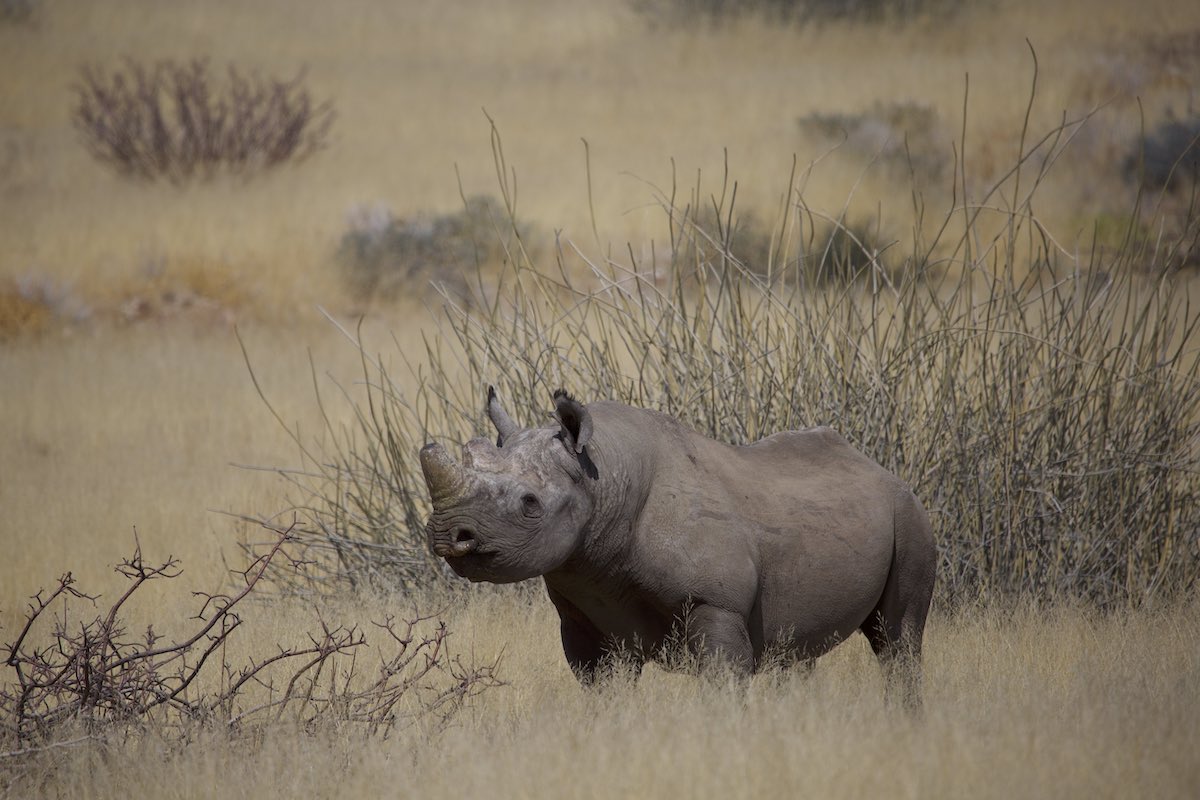
Most of the world’s remaining rhinos live in South Africa, and that country has been hit hardest by poaching, with more than 1,000 rhinos killed annually. Poaching gangs have become remarkably sophisticated, in some cases using helicopters to track rhinos and shoot them with guns or tranquilizing darts. Once downed, poachers remove the rhinos’ horns using chainsaws. The whole operation takes as little as 10 minutes, and if the rhino isn’t already dead by this point, it will often bleed to death after the fact. Its horns will be trafficked and sold illegally.
David McNab is a former anti-poaching ranger, and he has seen firsthand the plight of these magnificent creatures. He wants to save the rhinos, and he’s gearing up to do that the best way he knows how—by wearing the rhino marathon costume for charity.
A Champion for Rhinos
In April 2024, McNab, 35, will run the London Marathon to raise money for Save the Rhino International, an organization working to conserve viable populations of rhinos in Africa and Asia. His goal is to break the Guinness World Record for the fastest marathon dressed in a rhino costume. The record currently stands at 4:06:35, which means that yes, someone has done this before.
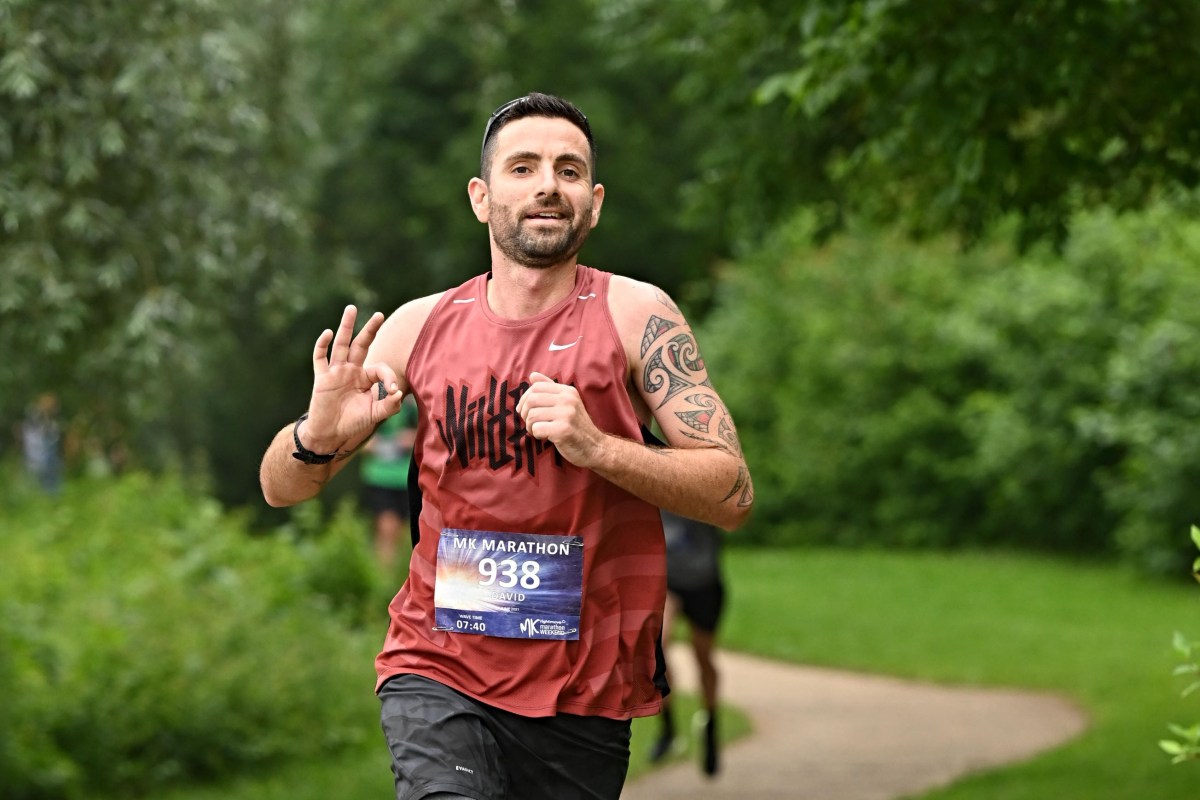
McNab has been running with 10kg weights in preparation for receiving the rhino costume in February. He told Outdoors.com: “Training is going well. I’m only really ramping it up now . . . I did a few triathlons earlier this year, so training only really got underway this month.”
McNab admits it’s “a crazy challenge,” but he says he’s hoping it’s achievable. “I’m also really hoping this will get people interested in donating to wildlife schemes again, because that fell to the wayside somewhat with COVID,” he adds.
Save the Rhino International actually has 12 rhino marathon costumes that it provides to runners who want to take on the cause to raise awareness and funds. McNab says there’s a long waiting list for these rhino running suits, but because he worked in South Africa as an anti-poaching ranger, he was selected relatively quickly.
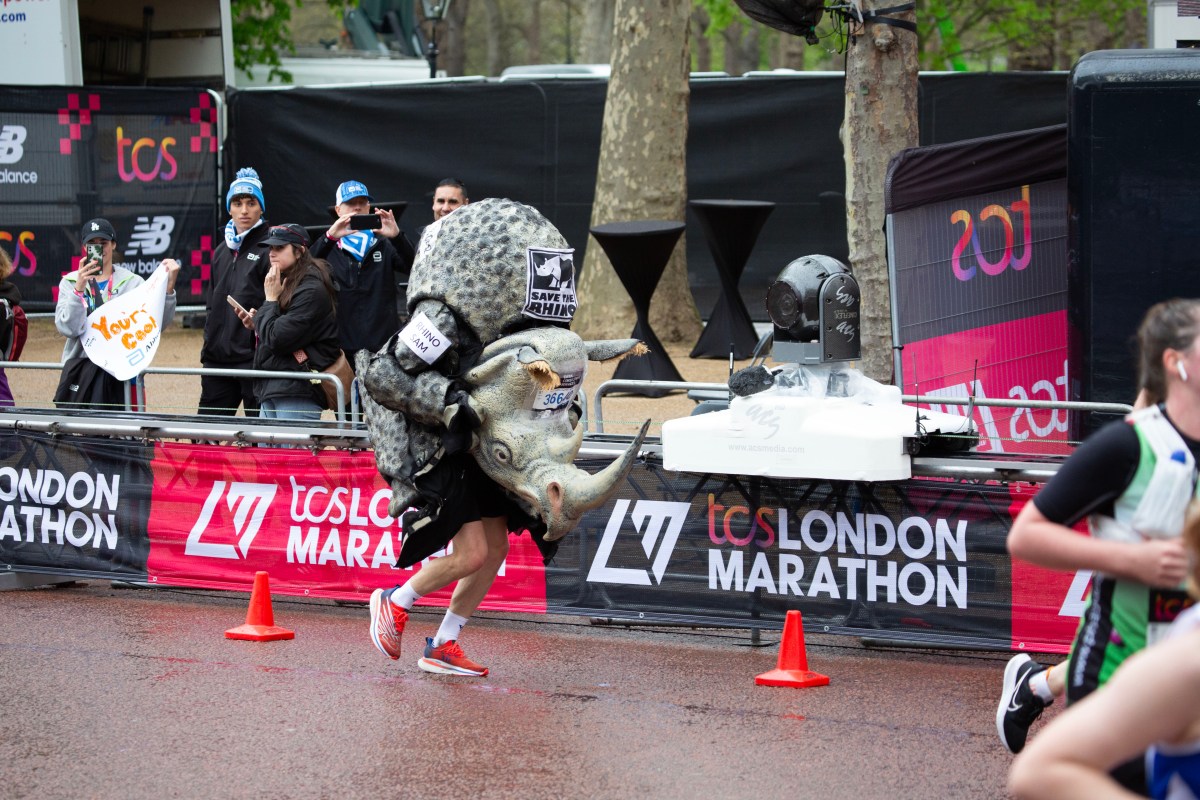
Sadly, McNab has witnessed the devastation of both black and white rhinos in southern Africa. “For 11 years, I lived in South Africa working on game reserves helping to protect rhinos,” he says. “A key part of the job was anti-poaching, which aimed to stop poachers from killing and taking rhinos from the reserve.”
McNab’s journey started back in 2008, when he embarked on what was meant to be a three-week volunteering trip to a game reserve in South Africa’s Eastern Cape. However, McNab says after falling in love with the country and the wildlife, he managed to secure a full-time position as a ranger on the reserve. McNab worked his way up, eventually running the volunteer program where he got his start.
“My role also involved conservation-management tasks, including working with the [poaching-depleted] white rhino population on the reserve,” he says. “My job included armed nightly patrols, daily perimeter checks, and constantly knowing the whereabouts of all the rhinos—a task easier said than done. This is where my real passion for protecting these most majestic creatures began.”
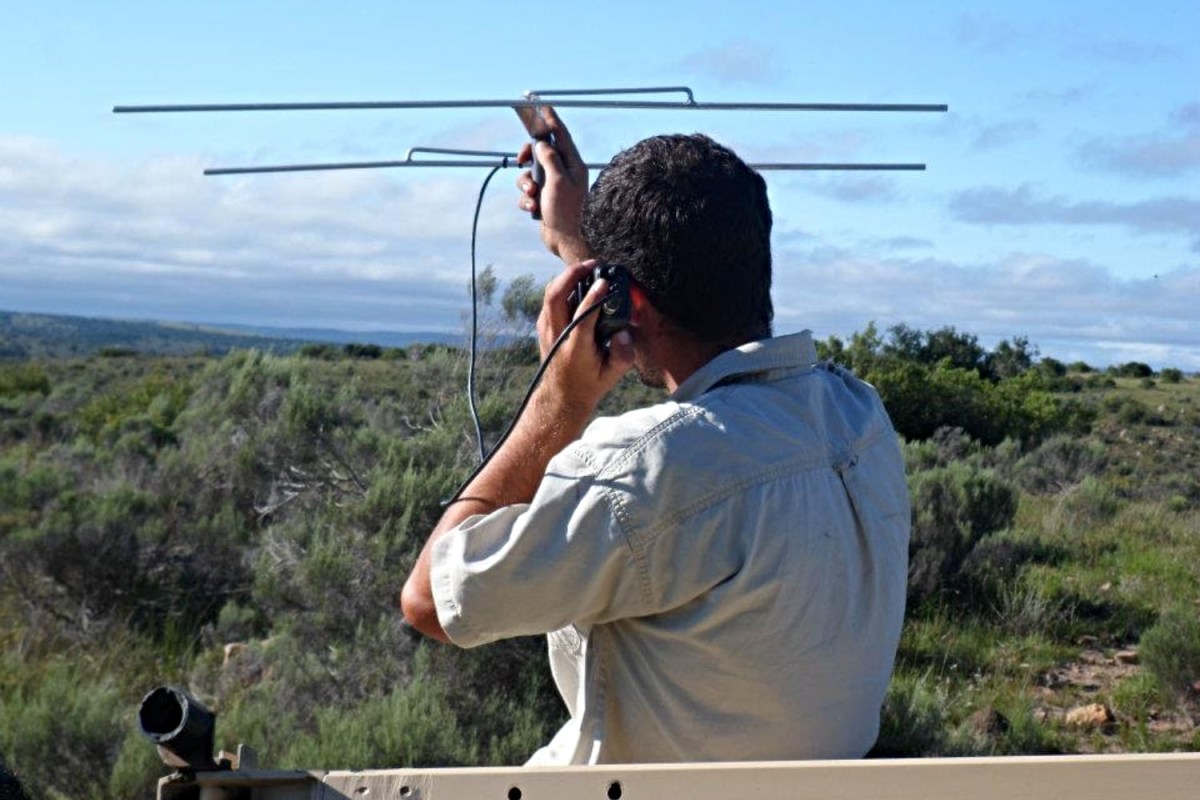
Bridging Past and Present
I first met McNab at an eco-project in Mauritius in East Africa, just days before COVID shut the world down. He was just getting into running seriously, and we ran together every morning for a week or so, although even then he was leaving me in the dust.
By that time, McNab had gotten married, and the couple decided to return to the U.K. to start a family. With COVID lockdowns in place, he started training seriously, aiming for a fast half-marathon time. This escalated to the pursuit of a sub-three-hour marathon, and then on to multiple ultramarathons.
Today, he’s father to an eight-month-old baby girl, and he’s planning his big race for the rhinos, bridging his new life with his old one. He sees his latest challenge, the rhino run, as “the perfect opportunity to link my African career with my passion for running, all while raising much-needed awareness and funds for this most special of creatures.”In fact, McNab has already raised nearly $2,000 USD for Save the Rhino International, and his goal is to raise just over $3,000 USD. He may also walk away from the experience with a new world record—the fastest marathon run in a rhino suit.
